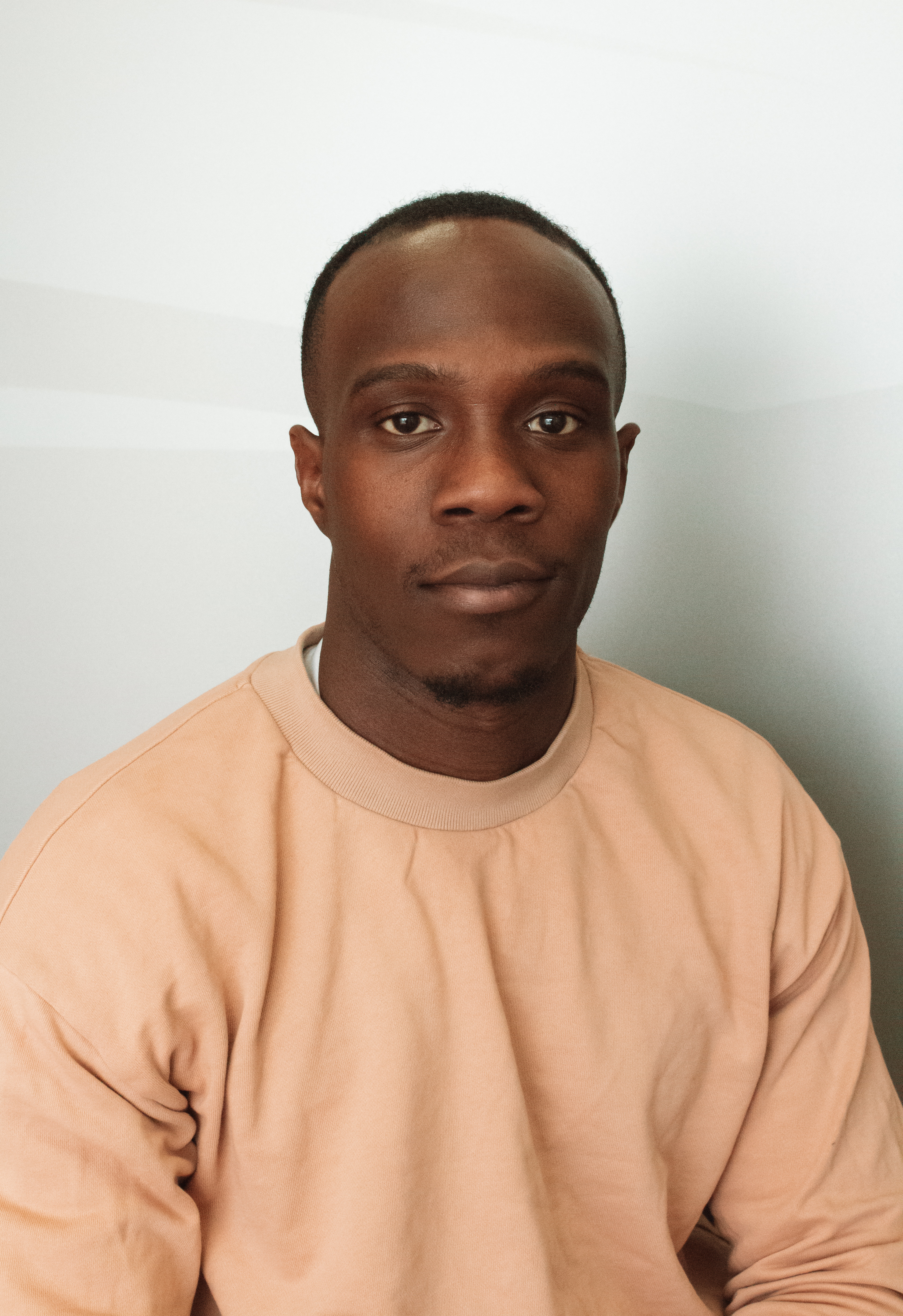SLP student sees bright future advocating for underrepresented patient groups
7 May 2024
 Every May, the Faculty of Rehabilitation Medicine marks Speech and Hearing Month by celebrating the diverse range of contributions being made by instructors and researchers in our faculty. It’s also a wonderful opportunity to find out more about students in our speech-language pathology (SLP) program and how they view their future in their chosen profession.
Every May, the Faculty of Rehabilitation Medicine marks Speech and Hearing Month by celebrating the diverse range of contributions being made by instructors and researchers in our faculty. It’s also a wonderful opportunity to find out more about students in our speech-language pathology (SLP) program and how they view their future in their chosen profession.
We spoke to Tobi Lawal, a second-year student in the Department of Communication Sciences and Disorders, about what SLP means to him and why he has chosen this area of study.
What drew you to the University of Alberta for your studies?
The university is esteemed, and it was perfect in terms of location as I could still be close to home while pursuing my studies. I also appreciate the way the Department of Communication Sciences and Disorders respects and honours equity, diversity and inclusion. These are factors that attracted me to the faculty at the U of A.
How would you describe SLP to someone who has never heard of it?
Speech-language pathology is a multi-faceted discipline involving speech, language (communication) and swallowing disorders. Communication is integral to interpersonal interactions both in adult and pediatric populations. Different conditions and disorders alter aspects of communication and its development or reacquisition. The same applies to feeding and swallowing.
What inspires your passion for speech-language pathology studies?
It comes from my fascination with anatomy and psychology. In this program, I’ve had the opportunity to learn about anatomical and cognitive contributions to vital daily speech and swallowing functions. This can happen in numerous ways and that is what makes it so exciting. It’s a privilege to have found something that complements my skills and interests and allows me to help people along the way.
What’s been the biggest challenge you’ve faced so far in your program?
In my first semester, I struggled with remaining confident about my abilities and questioned whether or not I belonged in the program. However, this feeling diminished quickly as I connected with peers whose goals and experiences were closely aligned with mine.
What has been one of your favourite parts of this program?
The most memorable experience I’ve had while completing this program was being selected to attend the Alberta Aphasia Camp retreat. Here, I spent three days working with fellow speech-language pathologists, occupational therapists and physical therapists to plan and execute a fun, supportive and relaxing weekend getaway for individuals with aphasia, their families and their caregivers. It was incredibly fulfilling to be able to participate in the event, collaborate and learn from a variety of clinicians and see the positive effects it yielded for the attendees.
What most drives you to your goal of becoming a SLP?
As an African-Canadian, I believe there needs to be more diverse representation in our field. We also need advocates with lived experience for patients with diverse backgrounds. I want to promote the awareness of our services to a more diverse range of communities and encourage people like me, who have different backgrounds, to choose a profession in rehabilitation medicine.
What do you envision when you think about your future as a speech-language pathologist?
When I think about my future career, I see myself in a position where I can help and advocate for clients — especially those from typically underrepresented backgrounds. I envision longevity through continuous learning and growth both as a person and as a clinician.